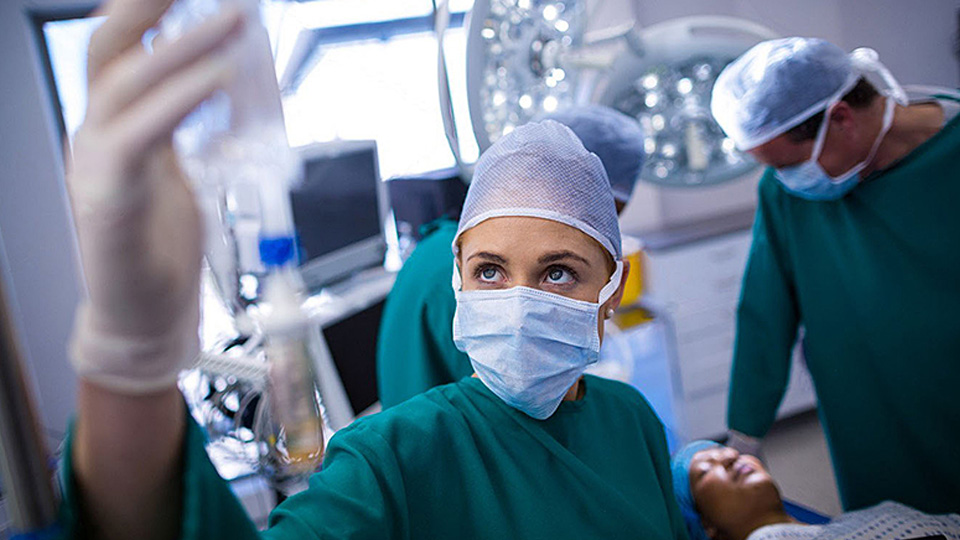Drug to Reverse Anesthesia Complication Tests in Patients Soon
Subscriber Benefit
As a subscriber you can listen to articles at work, in the car, or while you work out. Subscribe Now
While emerging from general anesthesia may seem a straightforward process, helping patients—both healthy and with complications—to “Open Your Eyes” is the mission of OYE Therapeutics. Delayed emergence from anesthesia is costly to both the patient and the healthcare system; one study showed the condition causes 32,000 deaths each year and $9.3 billion annually in added operating room expenses. A surprise phone call from the military opened a second door for the startup’s lead platform, and OYE is now marching forward on both opportunities.
Based in the Purdue Research Park of Northwest Indiana, OYE focuses on finding new uses for previously approved drugs to address gaps in medical care. The startup’s lead candidate, OYE-101 will begin a Phase 2/3 human clinical trial in the coming months.
“There are a lot of patients for whom waking up [from general anesthesia] is not so easy, and there are consequences to the healthcare system and to the individual,” says OYE Chief Operating Officer Michael Hicks. “Even with healthy patients who tend to wake up fairly rapidly and safely from modern anesthesia, we think there’s room to improve that experience.”
The Purdue-affiliated startup says OYE-101 helps patients “not only wake faster, but wake safer.” It’s especially helpful after long and complicated surgeries or for patients with higher risk, such as people with obstructive sleep apnea and older or obese patients. The injectable drug is designed to be given close to the time of extubation, a vulnerable period for the patient that carries risk of aspiration, a cardiovascular response or hypoventilation as the tube for mechanical ventilation is removed.
“Being extubated is almost analogous to holding your breath under water, because what’s been breathing for you is taken away,” says OYE founder and Chief Executive Officer Brett Dines. “What [OYE-101] does is shorten that period of time that you, effectively, have to hold your breath and allows your body’s natural process to begin breathing.”
Because OYE-101 is based on a previously approved drug that helps oxygenate prenatal babies, the startup will have an accelerated path to approval for the new use involving anesthesia emergence.
Hicks and Dines, both Purdue alumni, believe their experience combined with the executive team and board members will also help the startup make “quick strides.” Dines’ expertise includes drug and device development, and he was a high-ranking executive at Walgreens. Hicks has more than 25 years of experience as a healthcare executive and was previously president and CEO at a medium-sized hospital in central Illinois.
Both were shocked when, “completely out of nowhere,” the U.S. Department of Defense (DoD) contacted OYE.
“We were asked by the [Uniformed Services University of the Health Sciences] chair of anesthesia to participate in a conference call with their group, and we were told there’s an indication that we definitively had not thought of—out of left field,” says Dines.
Dines can’t share details of the research agreement with the DoD, but the team will be looking at the effectiveness of OYE-002 “to enhance acute pain control at the point-of-injury, cognitive processing, psychomotor resilience and mission capabilities” to “meet the unique demands of warfighters.” The “ultimate objective” of the partnership is to “save the lives of American military personnel worldwide,” but also translate the results to civilian care.
“When [the DoD] seeks to develop innovations in military medicine, it really enhances the desirability of the program if it has broader application to civilian life, and we all agree it will,” says Hicks. “Not only will [OYE-002] benefit our military personnel in hopefully some pretty important ways, but we also think it will have some positive impact on broader society, and that’s pretty exciting.”
Boosted by an unexpected military collaboration, the startup is marching forward on a mission to save the lives of soldiers and surgical patients.
Hicks explains why Dines’ vision inspired him to join OYE in early 2021.
Dines says OYE will use a “scientific bridge” with the FDA to accelerate the approval of OYE-101.
